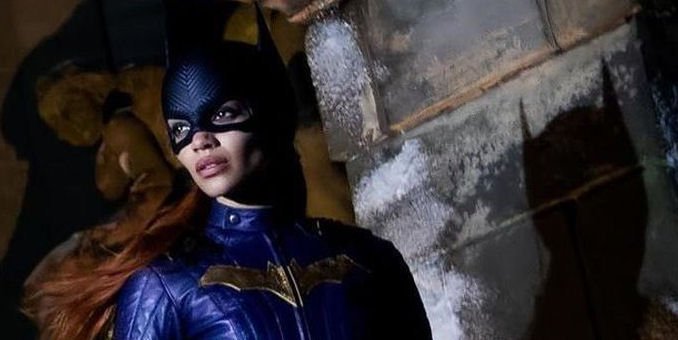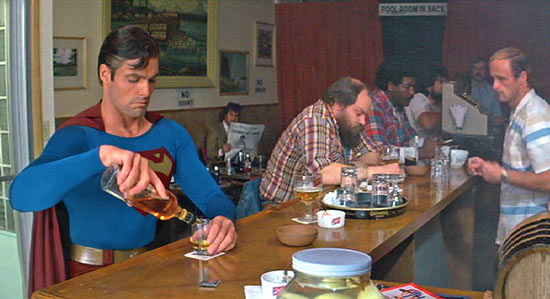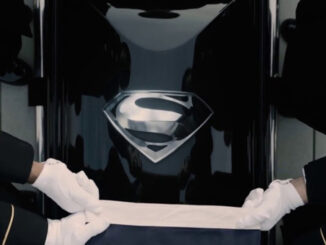
In February of 1984, Bill Sarnoff, one of the heads of Warner Communications publishing arm, contacted Marvel Comics with an offer. DC Comics was losing loads of money for Warners, and Sarnoff called Marvel, who was very financially successful at the time, to see if they wanted take over publishing of DC characters such as Superman, Batman and Wonder Woman. It would be a licensing agreement, Marvel wouldn’t own Superman, but it would allow Warners to get money from the comics without the expense of making them. An anti-trust suit against Marvel kept this arrangement from happening.
I have a modest proposal. I suggest that instead of that 10 year plan Warner Brothers Discovery announce at that earnings call on Thursday, they instead get Marvel Studios on the phone. I recommend that they try to throw together a similar agreement for the films based on the DC Comics characters. Let a studio that knows what it is doing give the DC characters the treatment they deserve because it is obvious that Warners have no idea what to do with their characters.

Obviously, I say this after the recent news of Warner Brothers Discovery shelving the nearly-completed Batgirl set the world on fire. But this is just the latest of brain-dead, short-sighted maneuvers Warner Brothers have made in regards to their DC Comics slate of films. New owners Discovery are simply carrying on in the traditions of previous owners of the studio.
Warner Brothers have always had a blind spot when it came to their DC Comics films. The studio that delivered such classics as Casablanca, The Exorcist and The Shining seems clinically unable to consistently deliver quality DC Comics films. The good films seem to happen almost by accident, and the bad films seem to outnumber them.

There are many reasons why DC Comics films fail. I’ve listed many of them. But there is a historical trend when it comes to DC Comics Films. Time and time again, Warners has proven that it doesn’t fully understand what makes its comic book films successful. It credits their success to usually one reason and usually tries to apply that less than nuanced reason to future comic book films.
Case in point: The Richard Donner Superman films and Tim Burton Batman films were great successes. Both were film makers with strong vision who created a film that stayed true to the character while being good movies as well. Then both creators left and both franchises devolved into camp showcases.

Why? Because the last major foray by a DC Comics character into another media was the 1966 Batman TV show, an unmitigated camp fest. But instead of examining that show and seeing that the popularity of its camp presentation tied closely the Pop Art movement of the day, Warners read it as “comic fans love camp” and we then got Superman dealing with Richard Pryor and Batman paying off damages with his Bat Credit Card.
And lest we forget that Warners was looking in a campy direction before either Donner or Burton signed on. The original script for Superman had a tone more similar to the Batman TV series than what we saw on the screen, and the original script for Batman was so campy that Bill Murray was being considered for Batman and Eddie Murphy for Robin.
It took a long time for Warners to ween itself away from believing that camp was the way to go. Do you remember that one of the first treatments for the Green Lantern film was an all-out comedy with Jack Black eyed as the lead? It wasn’t until Christopher Nolan took a shot at Batman that Warners’ philosophy changed.
Nolan’s Batman trilogy–Batman Begins, The Dark Knight and The Dark Knight Rises–were a grounded, psychological exploration of the Dark Knight Detective, one which introduced elements of the comic into film mythos. It was also dark and gritty. It was this latter quality was all that Warner Brothers focused on.

When the Green Lantern film bombed, group president Jeff Robinov knew how to fix it for the sequel–make it grittier. We never did get that Green Lantern sequel, but Robinov and Warners applied that “darker is better” philosophy to its Superman reboot, Man of Steel, and the DC Extended Universe it spawned. We now got a mopey Superman, constantly questioning his place in the world. We have Pa Kent telling Clark that he should have let a bus full of kids die to protect his identity. We have Superman break the neck of his enemy. And we had a Batman who killed indiscriminately as he worked towards his ultimate goal of stabbing Superman through the heart with a kryptonite lance.
None of these changes added more depth or meaning to the characters. On the contrary, it presented a version of the character opposite to those that fans grew to know and love. This alienated many in the films’ core audience. Not enough to keep the films from making money, but enough that the grosses were seen as disappointing to Warners.
View this post on Instagram
Which brings us to the present. Nobody in their right mind would think that the network that brought us Naked & Afraid and Alaskan Bush People would be the company to turn the DC films around. But few would expect that they would screw up even bigger than past regimes so soon after taking over.
There have been many reasons as to why WBD canned Batgirl, ranging from “a new broom sweeps clean” to a tax write-off to the film being too bad to release. But one reason given in the Variety article that hit early in the controversy struck out to me. The article quotes Warners’ insider saying that Batgirl bit the dust because of a “desire for the studio’s slate of DC features to be at a blockbuster scale.”
If this is the philosophy of the new regime, then the new bosses might be dumber than the old bosses. Because this philosophy has spelled the doom for a number of superhero franchises in past.
I have written a number of times about Hollywood budgets. There is a trend in Hollywood, especially when it comes to superhero films, to throw money at productions in an effort to chase a $1 billion payday. Budgets of $200 million or more are the rule. If the film is guaranteed to make $1 billion or more, this type of budget would be absolutely fine. The film would make enough money to be a hit.
But $1 billion films are harder to come by than you might think. As I write this, there have only been 50 films in all of history that have grossed $1 billion dollars or more. Out of that 50, only around 15 have been comic book films. Out of those 15, only 4 films–Aquaman, Joker, The Dark Knight and The Dark Knight Rises–have been DC Comics films.
But film makers think this plateau is easy to reach. They put everything they have into trying to reach this goal. And when they fail to hit $1 billion, it turns their entire franchise into disarray.
Take The Amazing Spider-Man 2. Sony thought this was a slam dunk to earn a billion at the box office. They crammed it with characters, plot lines and easter eggs for future franchises, all to a budget that had a high estimate of $293 million. It only made $709 million world wide. Even with promotion and marketing added in, it still made a profit. But not as much as Sony was expecting. As such, Sony was sent scurrying into the arms of Marvel Studios and yet another reboot.

And Discovery should have done its due diligence when it bought Warners. If it did, they should have read up on Batman v. Superman: Dawn of Justice. Like Sony and The Amazing Spider-Man 2, Warners thought this fight between their two biggest DC characters would be a shoo-in to make way more than a billion dollars. So much so, that Warners wanted the film to set the stage for the entire DC Extended Universe. Warners sank an estimated $300 million in making the film with an estimated $165 devoted to marketing.
They had so much hubris when it came to the film that it didn’t bother to put a good story in the movie. The film had a huge opening but was critically lambasted. As a result, the film didn’t have legs. Its box office plummeted starting with its second weekend and while it made a small profit, it didn’t break the billion dollar threshold.
If Discovery looked closer at Warners financials, they would have seen that the most profitable DCEU films–Suicide Squad, Wonder Woman, Aquaman and Shazam!–all had budgets below $200 million. Then you have the non-DCEU Joker, which was made for around $75 million and has made over a billion dollars worldwide. That’s a return on investment that any studio would love to have.
Taking this all into consideration, it boggles the mind that WBD would want all the future DC films to be made at a “blockbuster scale.” You don’t have to be Warren Buffett to know that “buy low, sell high” is a fundamental tenet of economics. Batgirl, if it was released to theaters, would have a better chance making a profit with its current $90 million budget than it would with one three times that much.
But WBD is suffering from the same “can’t see the forest for the trees” disease that previous administrations have. Only this time, its lack of focus is aimed at the film’s budgets than content. The executives at WBD might think comic book films need big budgets to be successful, but they’ll soon find out that without good stories, big budgets will hurt more than they help. By this time next year, we might be seeing Superman v Spider-Man from Marvel Studios.




